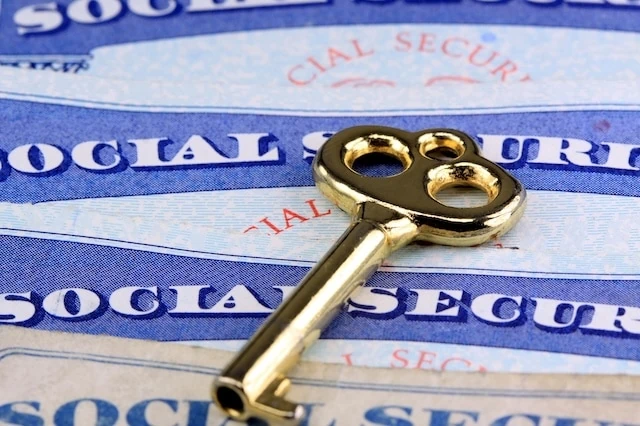There’s absolutely no debate as to whether you should take Social Security. Everyone should, at some point. But when you should take Social Security is a wide-open question—one that requires a lot of careful consideration because of the answer’s financial consequences.
Social Security is a pillar of many older Americans’ retirement income. As of November 2025, more than 9 in 10 people age 65 and older were collecting Social Security benefits, according to the Social Security Administration. Most seniors started collecting benefits early (more on what constitutes “early” in a minute), some waited until they could receive full retirement benefits, and others delayed their benefits for years to increase their benefits to the maximum amount.
So, what’s the best age to start collecting Social Security? As is the case with most financial questions, the answer depends on the person.
Some older adults need to stop working earlier in life than intended—because they have health issues, perhaps, or they need to be a caregiver for someone else, or they have a lower-than-average life expectancy and want to collect their benefits while they still can. However, the longer you delay collecting retirement benefits (to a point), the bigger your check, so some older adults who are healthy and happy at their jobs decide to run out the clock and maximize their Social Security income.
Each person needs to make their own decision on Social Security. Today, I’m going to arm you with the information you need to make that choice. Let’s talk about when you should take Social Security. We’ll weigh the benefits and drawbacks of collecting benefits early, waiting until you reach full retirement age, or delaying your payments until even later in life. And I’ll even talk about what you can do if you regret your decision.
Who Is Eligible for Social Security?

Before we dive into when you should collect Social Security retirement benefits, let’s review who is eligible to receive them.
Workers pay taxes on their earnings and in return earn Social Security “credits.” You can earn a maximum of four credits per year, and the amount of money required to earn a credit typically goes up each year. The majority of people need 40 credits to be eligible for a monthly Social Security retirement benefit; in other words, it usually takes a minimum of 10 working years to qualify. (It takes fewer credits to become eligible for disability benefits, however.)
If you qualify, your benefit amount is based upon how much you earned during your employment. The more you’ve earned, the higher monthly benefit you can expect to receive.
The Social Security Administration’s (SSA) calculation uses the average earnings of a person’s 35 highest-earning years of employment. Importantly, it uses that calculation no matter what—even if you haven’t worked 35 years. So if you’ve only worked for 32 years, the SSA would factor in your pay from those years … and the other three years would be considered zeroes, bringing down your average. So if your planned retirement age is a couple years before you would reach 35 years of employment, it probably would benefit you to delay retirement and log those last couple years’ worth of checks.
There are other types of Social Security benefits, of course, including disability and spousal benefits. You can check your eligibility for any Social Security payments at SSA.gov.
Related: Why Would Your Social Security Benefits Be Cut or Reduced? 10 Ways It Can Happen
At What Age Should I Claim Social Security?

It’s a pretty safe assumption that Social Security taxes have been taken out of every paycheck you’ve earned. So it stands to reason that you would want to collect as much in Social Security benefits as possible.
The estimated average monthly Social Security retirement benefit for a retired worker was $2,013 as of November 2025, according to the SSA. But that number can vary substantially based on several factors. The factor we’ll be focusing on today is when you choose to start receiving your Social Security payments.
Let’s discuss the different age milestones relevant to Social Security, as well as the pros and cons of collecting your benefit at certain ages.
Related: 10 States That Tax Social Security Benefits
What Is the Full Retirement Age for Social Security?

Full retirement age—aka FRA, aka normal retirement age—is the age at which you’re eligible to receive 100% of your expected Social Security benefits.
But a lot of people don’t know what that age is. In Nationwide’s 2024 Social Security Survey, 33% of respondents said they didn’t know what age they would be (or became) eligible for full retirement benefits. However, when pressed to take a guess, only 15% of adults were able to correctly identify their FRA based on the year of their birth.
A major reason for that is the fact that there’s no one full retirement age. A person’s FRA varies depending on the year in which they were born.
The current brackets for one’s normal retirement age are as follows:
- Born between 1943 to 1954: 66
- Born in 1955: 66 and 2 months
- Born in 1956: 66 and 4 months
- Born in 1957: 66 and 6 months
- Born in 1958: 66 and 8 months
- Born in 1959: 66 and 10 months
- Born 1960 or later: 67
Related: What Is the Government Pension Offset? [And How Does It Work?]
What Is the Minimum Age to Collect Social Security?

You can start collecting “Old-Age” (retirement) Social Security benefits as early as age 62.
Whether you should will depend on your situation.
If you collect Social Security benefits anytime before your full retirement age, your benefit will be permanently reduced. And collecting at age 62 would guarantee you the lowest possible benefit. Here’s how:
Social Security retirement benefits are reduced by 5/9ths of 1% for each month before normal retirement age. This reduction applies for up to 36 months before full retirement age. If you retire even earlier than 36 months before FRA, your benefit will be reduced by an additional 5/12ths of 1% per month, up to the maximum early retirement amount of 60 months. Per the IRS:
“For example, if the number of reduction months is 60 (the maximum number for retirement at 62 when normal retirement age is 67), then the benefit is reduced by 30 percent. This maximum reduction is calculated as 36 months times 5/9 of 1 percent plus 24 months times 5/12 of 1 percent.”
When Does It Make Sense to Collect Social Security Early?
Still, some people might actually be better off taking Social Security retirement benefits before they reach FRA.
For instance: If you’re dealing with a financial emergency or are deeply in debt, taking Social Security benefits early might help you avoid financial ruin. Or if you were forced to retire early, the income from Social Security might be necessary to keep you afloat.
Let’s say you have serious health conditions that will likely shorten your lifespan. If you aren’t confident you won’t even make it to full retirement age, it makes sense to collect your retirement benefit as soon as possible. (But keep in mind that if you’re married, delaying Social Security could increase the survivor’s payment your spouse receives.)
If you think life expectancy will be a consideration, take a peek at the Social Security Administration’s life expectancy tool. This tool shows the average life expectancy (both in total life expectancy and life expectancy from certain age benchmarks) based on your birthday and sex. For instance, a woman born on Valentine’s Day in 1965 would have a life expectancy of 87.6 years—an additional 20.6 years past her full retirement age.
It’s a crude, inexact tool, of course, but it can help you start to think realistically about retirement. Anyone really looking to factor in life expectancy will need to carefully consider their health history, current health, and family’s health history.
And zooming back out to thinking about early retirement, you’ll also want to consider your monetary needs, employment status (income can temporarily reduce your benefit), and marital status. Per that last factor: Once you reach your full retirement age, you can take the higher of 100% of your own retirement benefits or 50% of your spouse’s benefit.
Lastly, there are a few exceptions where people can actually collect Social Security before age 62. For instance, you can start collecting benefits at age 60 if you’re a survivor of another Social Security claimant. Also, those eligible to collect Social Security disability benefits can collect them at any age.
Related: How to Maximize Social Security Spousal Benefits
It Can Pay to Delay Taking Your Social Security Benefit

“Why would I wait any longer than full retirement age to get my full retirement benefit?”
Well, because if you work past your FRA, your full retirement benefit will actually increase. Here’s how it works:
Your Social Security retirement benefits are increased by a set percentage for every month you delay your benefits beyond your full retirement age. These increases are sometimes referred to as “delayed retirement credits (DRCs).”
Per the SSA, the monthly rate of increase depends on your year of birth, as follows:
- Born 1933-34: 11/14 of 1% (5.5% 12-month rate of increase)
- Born 1935-36: 1/2 of 1% (6.0% 12-month rate of increase)
- Born 1937-38: 13/24 of 1% (6.5% 12-month rate of increase)
- Born 1939-40: 7/12 of 1% (7.0% 12-month rate of increase)
- Born 1941-42: 5/8 of 1% (7.5% 12-month rate of increase)
- Born 1943 or later: 2/3 of 1% (8.0% 12-month rate of increase)
Benefit increases max out once you reach age 70, however. So there is no reason to wait past that age to start collecting your Social Security retirement benefit.
If you can wait until age 70 to retire (without enduring significant financial hardship), you might seriously consider delaying your retirement and collecting your maximum benefit. But as I mentioned above, this isn’t always the best choice, and in some cases, it simply might not be realistic.
Related: How Much Social Security Will I Receive?
What If I Make the Wrong Choice?

It’s understandable to worry about making the wrong decision—how you approach Social Security will affect your finances for years, likely decades.
Fortunately, in a couple situations, the SSA offers some grace should you change your mind.
Once you reach full retirement age, you can choose to temporarily stop receiving Social Security retirement benefits. Doing so will earn you delayed retirement credits, which will come into effect when you decide to resume receiving benefits. (Note: Benefits will automatically resume once you reach age 70.)
Also, if you take retirement benefits early, you can change your mind and withdraw your application within the first 12 months of receiving benefits. You would have to repay the government—that’s benefit money, Medicare payments (if any), and withheld taxes. But you can restart your benefits at a later date, which would also entitle you to a higher rate.
This most frequently comes into play when a person wants to return to work. Let’s say you retire at age 62, but a few months later, your former employer tosses you a spectacular offer to return to work. You’d have to repay the benefits you’ve collected up to that point, but you could withdraw your application, return to work and collect a paycheck once more, then re-retire at a later date of your choosing. (And if what you earn contributes positively to your 35-year employment average, you could improve your Social Security benefits even more!)
Don’t be fickle, though. You’re allotted one application withdrawal, so if you change your mind again, you’re out of luck.
Related: What Is the Windfall Elimination Provision? [And How Does It Work?]
How Does Medicare Tie In?

The minimum age for Medicare health insurance is age 65 unless you have a qualifying disability or medical condition. Anyone who retires before age 65 and starts collecting Social Security retirement benefits must have a health insurance plan in place, such as joining a spouse’s plan or buying private insurance. (Check out our article on health insurance options for early retirees for more options.)
If you reach age 65 and you’re already receiving Social Security benefits, you’ll automatically be enrolled in Medicare Part A and have the option to enroll in Parts B, C, and/or D. (The benefits will begin on the first day of the month in which you turn age 65.)
If you don’t expect to receive Social Security benefits by the time you reach age 65, you should contact the SSA three months before your 65th birthday to sign up for Medicare. It typically makes sense to sign up for Medicare Part A even if you’re covered by employer insurance (most people don’t have to pay a premium for Part A). However, you can delay enrolling in Part B coverage—voluntary coverage that does charge a premium—and may instead enroll anytime during your Special Enrollment Period (SEP), which starts within your first month of eligibility for Part B and ends eight months after you lose coverage (by either your employment or insurance ending). Part C and D SEPs work similarly, but last until just two months after you lose coverage.
Just note that if you delay signing up for Medicare and don’t enroll during your SEP, you could end up paying penalties for late enrollment.
Related:








